The Catalyst Killing - [6]
I put the card with the two elderly Communist Party members to one side in favour of a list of the names of the four remaining members of the Socialist Youth League who had been with Falko Reinhardt and Marie Morgenstierne at the cabin in the mountains two years ago. It read:
1. Trond Ibsen, psychology student, born 1944.
2. Anders Pettersen, art student, born 1945.
3. Miriam Filtvedt Bentsen, literature and language student, born 1947.
4. Kristine Larsen, politics student, born 1945.
There were addresses and telephone numbers for all of them except the young Miriam Filtvedt Bentsen, whose address was given as a room at Sogn Halls of Residence.
I noticed immediately that Detective Inspector Danielsen, as the entrenched reactionary conservative he was, in addition to all his other unlikeable qualities, had written the students’ details down in alphabetical order but had put the men before the women. I was sitting pondering which order to contact them in when the phone on my desk solved my problem.
On the other end I heard one of the switchboard ladies say that there was a man on the line who said that he had potentially crucial information regarding the murder of Marie Morgenstierne. Then I heard a man introduce himself as ‘psychologist Trond Ibsen’. His voice was deep, calm and remarkably unrevolutionary. He told me that he had not been at Smestad station with Marie Morgenstierne, but had heard on the radio that a beautiful woman had been shot there, and feared it was her. So he felt he should report that not only was he a close friend of the deceased, but that he had also been with her at a political meeting in Smestad less than an hour before her death.
I thanked him for the information and said that I would like to meet him as soon as possible. He suggested that we should meet at Smestad. He had the keys to the place where the meeting had been held. I agreed and promised to meet him at the specified address at one o’clock.
VI
Marie Morgenstierne’s last political meeting had taken place in a dusty two-room office in Smestad. Five wooden chairs, now empty, were positioned around a small desk. I commented to Trond Ibsen that it obviously had not been a large meeting. He smiled, not without irony, and replied that it was true; there were not many who had realized that the future lay in combining the best elements of Soviet and Chinese communism. It had been Falko’s great vision. The small group that had gathered around him was still somewhat scornfully called the ‘Falkoists’ by other left-wing radicals, and had at various times been ostracized by the Moscow supporters in the Norwegian Communist Party and the pro-China communists in the SYL. The people who had attended yesterday’s meeting were the same small flock of visionaries and believers who had been his friends – Marie Morgenstierne, Anders Pettersen, Kristine Larsen and Trond Ibsen himself. The fifth chair had always been Falko Reinhardt’s and so was routinely left empty in case of his return.
I looked at Trond Ibsen, bemused. He was a slightly overweight, apparently very easygoing and clean-shaven young man. Apart from a single badge that said ‘Victory for FNL!’ and some unusually sharp-edged academic spectacles, there was little in his appearance to indicate that he was in any way radical or fanatical. He smiled disarmingly and shrugged.
‘The business with the chair was initially for Marie, and for Anders to a certain extent, as he also had a very close relationship with Falko. Then it just became a tradition we all took for granted. It is quite usual after accidents and disappearances for those left behind to continue to wait and hope that their loved one will come back again one day.’
‘Even a psychologist?’ I remarked.
His nod was slightly sheepish.
‘Even a psychologist. Psychologists are also human. We are simply a little better than others at understanding ourselves and other people. One would hope,’ he added swiftly, with another charming smile.
Trond Ibsen gave the impression of being a socially gifted man. He was at once suitably serious when I asked if he thought that Falko Reinhardt was alive. Trond Ibsen replied that he had at first, but now doubted it more and more. It was perhaps not so easy for the layman to see, he said, adjusting his glasses, but it had been obvious to him that Falko had been troubled by something in the weeks before he disappeared. Something he knew was weighing on him. It was therefore easy to assume that assassination or abduction were the most likely possibilities. Bearing in mind the topic of Falko’s thesis, it was not hard to imagine some kind of Nazi conspiracy – not that he wanted to point a finger at anyone.
I asked immediately if his dark mood in the weeks before his disappearance might not also support the theory of suicide. Trond Ibsen straightened his glasses again and said that that would generally be a fair assumption. Everyone who had had the pleasure of knowing Falko Reinhardt would, however, dismiss this theory out of hand. He had never met a more charismatic and vibrant person, and what was more, Falko Reinhardt himself believed that he still had so much to do in this life.
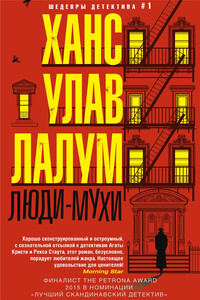
Убит бывший лидер норвежского Сопротивления и бывший член кабинета министров Харальд Олесен. Его тело обнаружено в запертой квартире, следов взлома нет, орудие убийства отсутствует. На звук выстрела к двери Олесена сбежались все соседи, но никого не увидели. Инспектор уголовного розыска Колбьёрн Кристиансен считает, что убийство, скорее всего, совершил кто-то из них. Более того, он полагает, что их показания лживы.
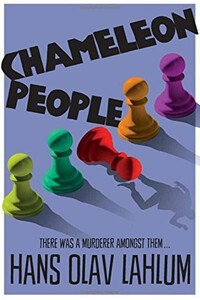
From the international bestselling author, Hans Olav Lahlum, comes Chameleon People, the fourth murder mystery in the K2 and Patricia series.1972. On a cold March morning the weekend peace is broken when a frantic young cyclist rings on Inspector Kolbjorn 'K2' Kristiansen's doorbell, desperate to speak to the detective.Compelled to help, K2 lets the boy inside, only to discover that he is being pursued by K2's colleagues in the Oslo police. A bloody knife is quickly found in the young man's pocket: a knife that matches the stab wounds of a politician murdered just a few streets away.The evidence seems clear-cut, and the arrest couldn't be easier.
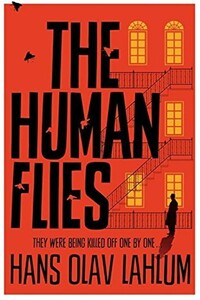
Oslo, 1968: ambitious young detective Inspector Kolbjorn Kristiansen is called to an apartment block, where a man has been found murdered. The victim, Harald Olesen, was a legendary hero of the Resistance during the Nazi occupation, and at first it is difficult to imagine who could have wanted him dead. But as Detective Inspector Kolbjorn Kristiansen (known as K2) begins to investigate, it seems clear that the murderer could only be one of Olesen's fellow tenants in the building. Soon, with the help of Patricia – a brilliant young woman confined to a wheelchair following a terrible accident – K2 will begin to untangle the web of lies surrounding Olesen's neighbors; each of whom, it seems, had their own reasons for wanting Olesen dead.
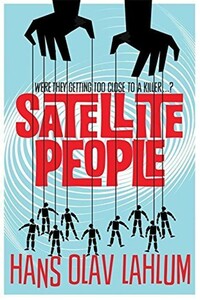
A gripping, evocative, and ingenious mystery which pays homage to Agatha Christie, Satellite People is the second Norwegian mystery in Hans Olav Lahlum's series. Oslo, 1969: When a wealthy man collapses and dies during a dinner party, Norwegian Police Inspector Kolbjorn Kristiansen, known as K2, is left shaken. For the victim, Magdalon Schelderup, a multimillionaire businessman and former resistance fighter, had contacted him only the day before, fearing for his life. It soon becomes clear that every one of Schelderup's 10 dinner guests is a suspect in the case.
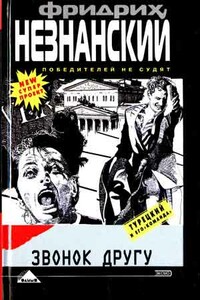
В жизни многих людей иногда наступают минуты, когда без дружеской поддержки — хоть головой в омут. Тонкие психологи, строители очередных финансовых «пирамид» взяли на вооружение и этот «пограничный момент» в сознании растерянного человека, чтобы использовать его в своих корыстных целях. А то, что при этом рушатся чьи-то жизни, происходят самоубийства, — никого не касается. Таково, по их убеждению, время, в котором каждый сам за себя…
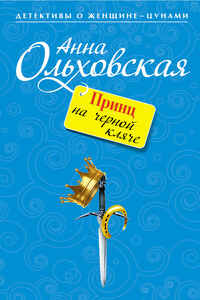
В прошлый раз только чудо спасло красотку Лану Красич от страшного жертвоприношения на алтаре в центре древнего лабиринта. И вот снова на Олешином острове происходит что-то неладное. Неужели опять всему виной языческий культ?.. Лана не желает верить во всю эту мистическую чушь, но друзей и ее саму продолжают преследовать жуткие злоключения. Возлюбленному Ланы Кириллу Витке внезапно становится плохо, и его срочно увозят на «Скорой» в неизвестном направлении, и потом никто не может найти больницу, куда его поместили.
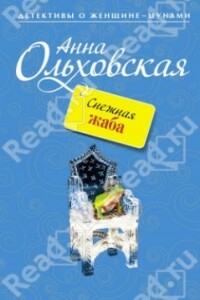
Глубоко в Уральских горах в секретных лабораториях члены нацистской организации «Аненербе» пытаются вывести идеальных арийцев, которые в будущем подчинят себе весь мир. Ученые значительно преуспели в этом, один такой совершенный экземпляр уже имеется. Теперь же их основной задачей является получение от красавца Кая идеального потомства. Но удавшийся генетический эксперимент ни в коем случае не желает становиться самцом‑производителем расы «господ» и всячески уворачивается от выполнения супружеского долга с совершеннейшей из женщин.
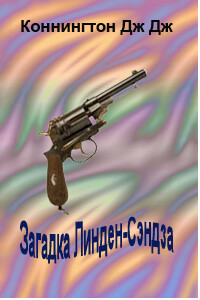
Классический английский детектив: преступление и расследование. Место действия — приморская гостиница, время — первая треть 20 века.Преступление в Линден-Сэндзе расследуется троицей, весьма характерной для истории криминалистики и ее отражения в английской детективной литературе: сыщик-любитель Уэндовер, полицейский инспектор Армадейл и центральная фигура, уравновешивающая двух сыщиков — сэр Клинтон Дриффилд.Вышел в Англии в 1928 году.
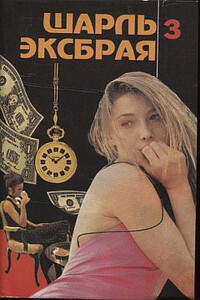
Шарль Эксбрая наряду с Ж. Сименоном, С.-А. Стееманом и Л. Тома является крупнейшим мастером детектива во французской литературе XX века. Опубликовав более сотни романов, он добился общеевропейской, а к началу 70-х годов и всемирной популярности. Прозу Эксбрая отличают мастерски выстроенный сюжет, в основе которого обычно лежит кошмарное преступление, неожиданные повороты событий, зловещая атмосфера тайны, раскрывающейся лишь на последних страницах. Книги Эксбрая написаны прекрасным прозрачным языком, с истинно французским вкусом и юмором.
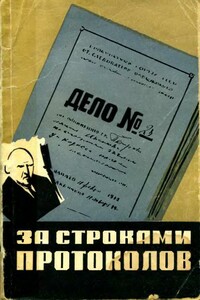
В книге рассказывается история главного героя, который сталкивается с различными проблемами и препятствиями на протяжении всего своего путешествия. По пути он встречает множество второстепенных персонажей, которые играют важные роли в истории. Благодаря опыту главного героя книга исследует такие темы, как любовь, потеря, надежда и стойкость. По мере того, как главный герой преодолевает свои трудности, он усваивает ценные уроки жизни и растет как личность.